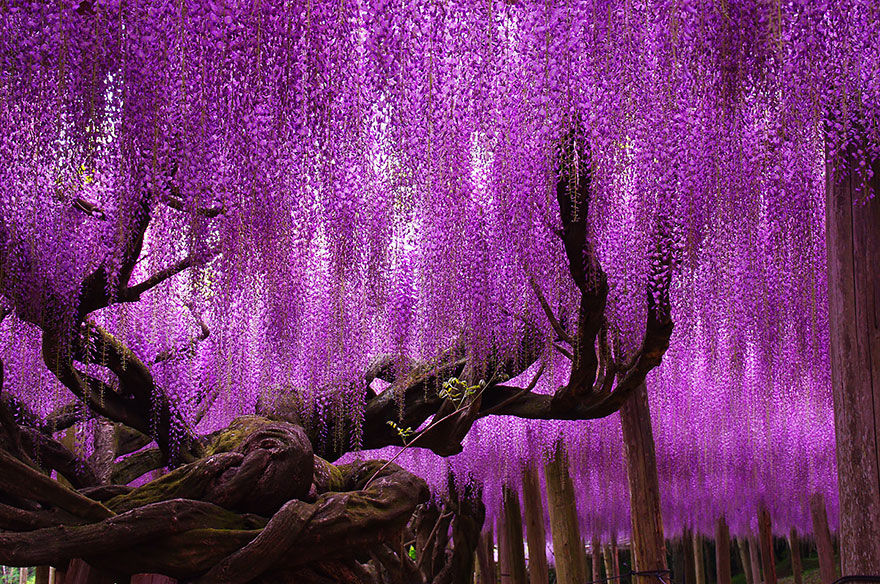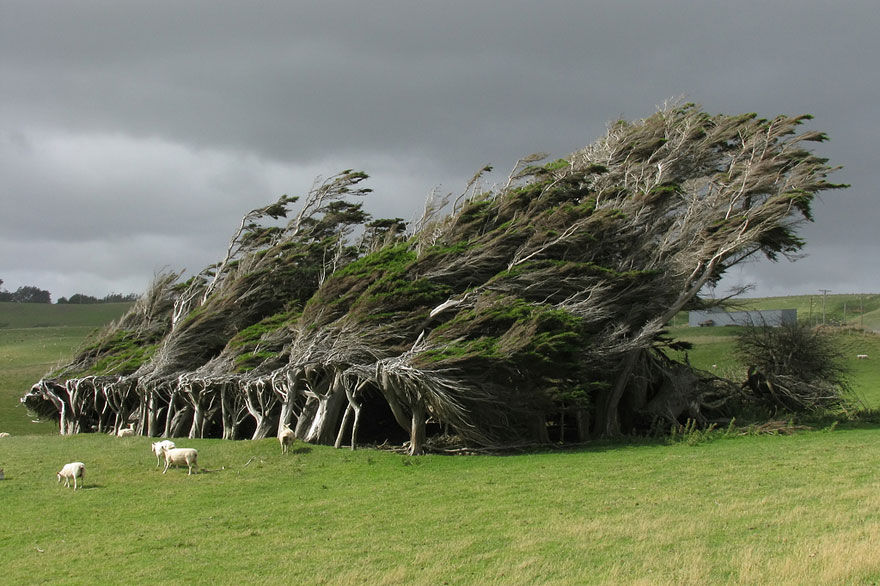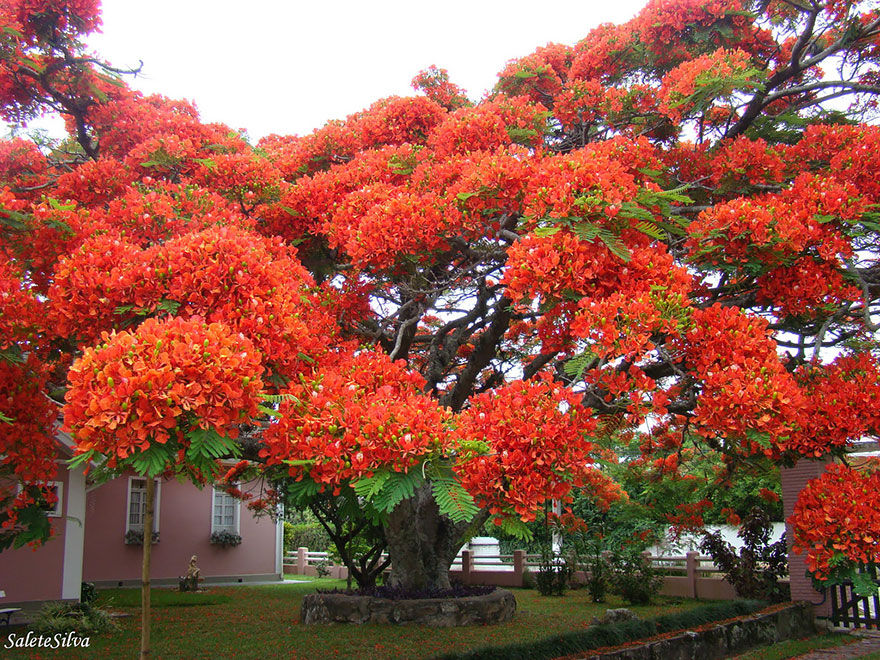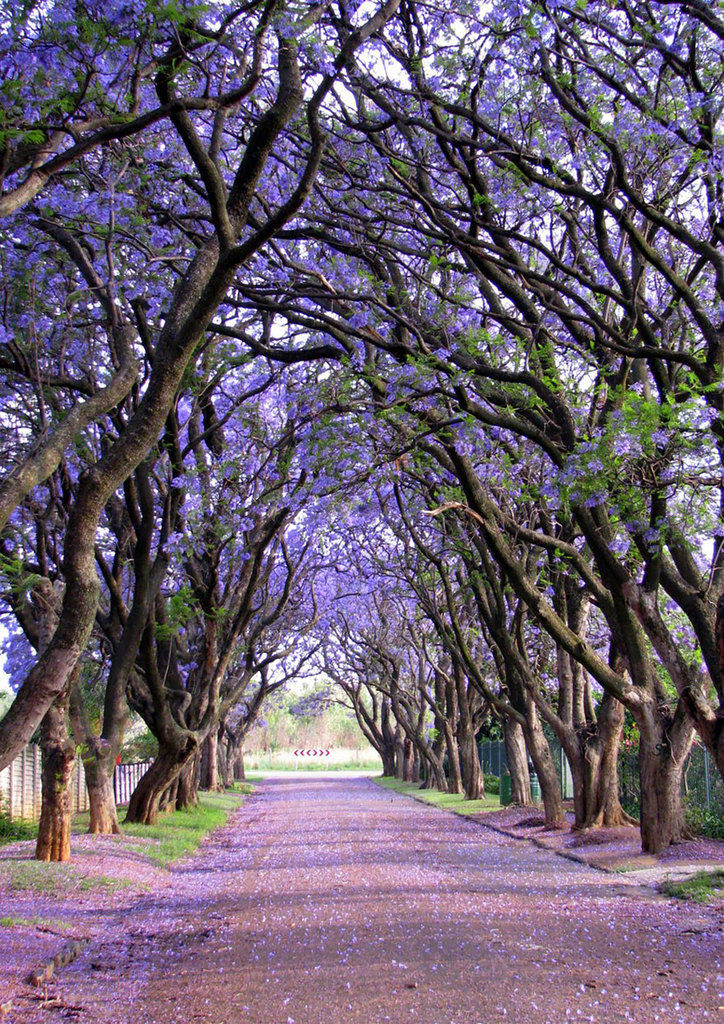 The 125 - Year - Old Rhododendron Tree , Canada.
The 125 - Year - Old Rhododendron Tree , Canada. The 144 - Year - Old Wisteria Tree: Covers 1990 Square Meters, The Distance As Installation Art, And Very Beautiful Dream , Japan.
The 144 - Year - Old Wisteria Tree: Covers 1990 Square Meters, The Distance As Installation Art, And Very Beautiful Dream , Japan. Wind Tree Inclined Wonders: I Didn't Think Long-Term Under Strong Wind Blowing, The Trees Are Grown Into Such A Strange Shape , New Zealand.
Wind Tree Inclined Wonders: I Didn't Think Long-Term Under Strong Wind Blowing, The Trees Are Grown Into Such A Strange Shape , New Zealand. Enormous Maples Have The Feeling Of Fairy Tales , Portland.
Enormous Maples Have The Feeling Of Fairy Tales , Portland. Enormous Maples Have The Feeling Of Fairy Tales , Portland.
Enormous Maples Have The Feeling Of Fairy Tales , Portland. Baobab, Heard That Is Very Good At These Trees Stored Water Enough, There Was A Drought Can Come In Handy , Madagascar.
Baobab, Heard That Is Very Good At These Trees Stored Water Enough, There Was A Drought Can Come In Handy , Madagascar. The Antarctic Beech: This Tree Is Native To Chile, If Have The Feeling Of The Tropical Forest.
The Antarctic Beech: This Tree Is Native To Chile, If Have The Feeling Of The Tropical Forest. Beautiful Maple Tree, The Maple Leaf Is Like A Natural Red Carpet, Is Very Beautiful , Oregon.
Beautiful Maple Tree, The Maple Leaf Is Like A Natural Red Carpet, Is Very Beautiful , Oregon. Oak Trees, The Trees Like The Next Second Will Start To Move , South Carolina.
Oak Trees, The Trees Like The Next Second Will Start To Move , South Carolina.

Giant Redwood: 73 Meters High, The Ground 28 Meters Circumference, Human In Front Of The Tree, Too Small , California. Dragon's Blood Tree Takes Its Name From Its Deep Red Juice, Can Be Used As A Dye, Or Paint A Violin. Looks Like A Huge Mushroom, Very Lovely , Yemen.
Dragon's Blood Tree Takes Its Name From Its Deep Red Juice, Can Be Used As A Dye, Or Paint A Violin. Looks Like A Huge Mushroom, Very Lovely , Yemen.

 The Angel Oak: There Are 20 Meters High, An Estimated 400 To 500 Years. This Tree Is Estimated As High As 400 Or 500 Years Old, Very Spectacular , South Carolina.
The Angel Oak: There Are 20 Meters High, An Estimated 400 To 500 Years. This Tree Is Estimated As High As 400 Or 500 Years Old, Very Spectacular , South Carolina. Phoenix Wood:Flamboyant Tree,Only In The Tropics, The Tree Is Very Popular , Brazil.
Phoenix Wood:Flamboyant Tree,Only In The Tropics, The Tree Is Very Popular , Brazil.
 Grow Dark Hedge: 18th Century Planting, Because Of Unique Landscape, Appeared In The " Game Of Thrones" , Northern Ireland.
Grow Dark Hedge: 18th Century Planting, Because Of Unique Landscape, Appeared In The " Game Of Thrones" , Northern Ireland. Grow Dark Hedge: 18th Century Planting, Because Of Unique Landscape, Appeared In The " Game Of Thrones" , Northern Ireland.
Grow Dark Hedge: 18th Century Planting, Because Of Unique Landscape, Appeared In The " Game Of Thrones" , Northern Ireland.















